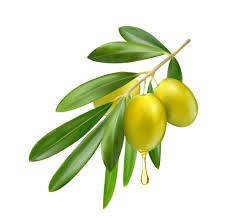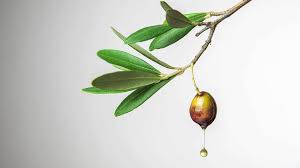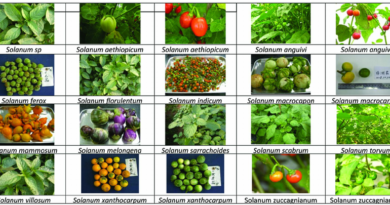Olive Oil Glands: Economic Importance, Uses, and By-Products
Olive oil glands, also known as oil glands or oil-producing glands, are specialized structures found in the skin of olives (Olea europaea), the fruit of the olive tree. These glands play a crucial role in the production of olive oil, a valuable and widely used oil in cooking, cosmetics, and other applications. Olive oil glands are primarily located in the outer layer of the olive fruit, particularly in the skin or epicarp.
The glands consist of small, microscopic structures called oil cells or oil droplets. These cells are densely packed within the olive skin. Olive oil glands produce and store lipids, including the fatty acids and other compounds that make up olive oil. The lipids are synthesized within the glands and accumulate in the oil droplets.
The process of oil synthesis involves the conversion of various precursors, such as sugars and fatty acids, into triglycerides and other lipids. This synthesis occurs within the oil cells of the glands. As the oil cells accumulate lipids, they expand and merge, forming droplets of olive oil. These oil droplets are extracted during the olive oil production process.
Understanding the structure and function of olive oil glands is important for olive cultivation, harvesting, and processing to optimize olive oil production while maintaining its quality and nutritional value.
The Economic Importance and Uses of Olive Oil glands

Olive oil glands play a critical role in the production of olive oil, a widely used and economically significant product. Olive oil glands are specialized structures found in the fruit (olives) and leaves of the olive tree (Olea europaea). The glands produce and store the essential oils that are extracted to make olive oil.
Here are the economic importance and uses of olive oil glands:
1. Production of Olive Oil: Olive oil glands are the primary source of the essential oils present in olives, which are extracted to produce olive oil. Olive oil is a major agricultural product and is used both domestically and internationally for culinary purposes.
2. Culinary Uses: Olive oil is a staple in Mediterranean cuisine and is used for cooking, frying, salad dressings, marinades, and as a condiment. It is known for its rich, distinct flavor and health benefits, making it a preferred choice in various cuisines worldwide.
3. Health Benefits: Olive oil is considered a healthy fat due to its high content of monounsaturated fats, specifically oleic acid. It is associated with several health benefits, including reduced risk of heart disease, improved cholesterol levels, and anti-inflammatory properties.
4. Cosmetics and Personal Care: Olive oil is a common ingredient in skincare and beauty products due to its moisturizing and nourishing properties. It is used in lotions, creams, soaps, shampoos, conditioners, and various other beauty products.
Read Also: Olive Pulp: Economic Importance, Uses, and By-Products
5. Pharmaceuticals: Olive oil is used in pharmaceutical formulations, especially in traditional medicine, for its potential health benefits. It is also used as a carrier oil for essential oils and herbal extracts.
6. Traditional Medicine: Olive oil has been used for centuries in traditional medicine for its various health-promoting properties. It is believed to have anti-inflammatory, antioxidant, and antimicrobial effects.
7. Industrial Applications: Olive oil can be used in industrial applications such as lubricants, polishing agents, and as a base for some paints and varnishes.
8. Economic Importance for Olive-Producing Regions: Olive oil production is a significant contributor to the economies of regions with extensive olive cultivation. Countries such as Spain, Italy, Greece, and Tunisia are major producers and exporters of olive oil, generating substantial revenue and employment opportunities.
9. Tourism and Culinary Tourism: Olive oil production and its association with Mediterranean cuisine contribute to culinary tourism in olive-producing regions. Olive oil tours, tastings, and related activities attract tourists and contribute to the local economy.
10. Cultural and Historical Significance: Olive oil has cultural and historical significance in Mediterranean and Middle Eastern cultures. It has been a key ingredient in their cuisines and rituals for thousands of years.
The Products and By-products That Can Be Derived From Olive Oil glands
Olive oil is derived from the fruit of the olive tree (Olea europaea) and is primarily extracted from the glands within the olive fruit. The process of extracting olive oil yields various products and by-products.
Here is a list and explanation of the main products and by-products derived from the olive oil glands:
1. Olive Oil (Main Product): Olive oil is the primary product obtained from the glands of the olive fruit. The extraction process involves crushing the olives to release the oil, followed by pressing or centrifugation to separate the oil from the rest of the olive components.
2. Pomace Oil (Product): Pomace oil is a lower-grade oil extracted from the residual pulp, seeds, and skin left after the first pressing of the olives. Solvents are often used to extract the remaining oil from the pomace.
3. Olive Pomace (By-Product): Olive pomace is the solid residue left after the first pressing of the olives to extract virgin olive oil. It includes the crushed pulp, seeds, and skin. While it’s not suitable for direct consumption, it can be further processed to extract pomace oil.
4. Olive Cake (By-Product): Olive cake is a dry, solid residue obtained after the extraction of olive oil or pomace oil. It is primarily composed of the solids from the olive pomace and may be used as a source of energy in some applications.
5. Olive Leaf Extract (Product): Olive leaf extract is obtained from the leaves of the olive tree. It contains various bioactive compounds, including polyphenols, which have potential health benefits and are used in dietary supplements and functional foods.
Read Also: Olive Pulp: Economic Importance, Uses, and By-Products
6. Olive Husks (By-Product): Olive husks are the outer coverings or shells of the olive fruit. They are typically a waste product after the olives are processed for oil extraction. However, they can be utilized for various purposes, including biomass for energy production or as a substrate for composting.
7. Olive Pit (By-Product): Olive pits are the hard, woody inner seed or pit of the olive fruit. They are a by-product of olive processing and can be used as a source of energy, activated carbon, or even as a component of animal feed.
8. Olive Mill Wastewater (By-Product): Olive mill wastewater is the liquid residue generated during the olive oil extraction process. It contains water, organic matter, and various compounds. Proper treatment and disposal of this wastewater are crucial to prevent environmental pollution and to potentially extract valuable components.
In conclusion, olive oil glands are vital in the production of olive oil, a product with diverse uses in the culinary, cosmetic, pharmaceutical, and industrial sectors, contributing significantly to the economy and culture of olive-producing regions.
Read Also: Comprehensive Farm Startup Guide









